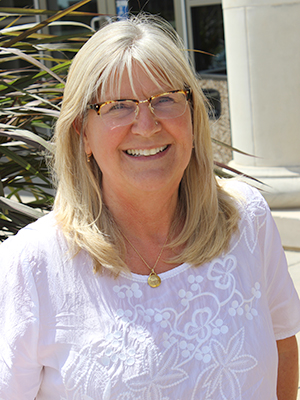
Sep. 20, 2017 – Every month, about 8 million consumers visit the Avvo website, looking for legal information or legal services. This online marketplace has a powerful capability to match potential clients with lawyers. The question is: should it be against the rules?
More specifically, should it violate the professional ethics rules for lawyers to engage with a virtual legal marketplace that facilitates legal services between lawyers and clients, where the facilitator is a for-profit company that takes a “marketing” fee?
Some states are looking closely at the arrangements that take place between lawyers and for-profit, online legal platforms and have concluded that such arrangements violate existing ethics rules on advertising, fee-sharing, recommendations, and/or referrals.
Oregon, on the other hand, is taking a different approach. The Oregon State Bar (OSB), a mandatory organization with a regulatory/disciplinary function, is attempting to change the rules, allowing such arrangements in the hope of increasing access to justice.
A New Approach
An OSB task force recently released a report, “The Future of Legal Services in Oregon,” which examines new models for the delivery of legal services and makes recommendations on how to regulate them.
 Joe Forward, Saint Louis Univ. School of Law 2010, is a legal writer for the State Bar of Wisconsin, Madison. He can be reached by email or by phone at (608) 250-6161.
Joe Forward, Saint Louis Univ. School of Law 2010, is a legal writer for the State Bar of Wisconsin, Madison. He can be reached by email or by phone at (608) 250-6161.
For instance, OSB’s Futures Task Force recommends amending fee-sharing rules “to allow fee-sharing agreements between lawyers and lawyer referral services, with appropriate disclosure to clients,” even if the referral service is for-profit.
“Innovative referral-service models that could assist in shrinking Oregon’s access-to-justice gap should not be stifled by a rule that was written for a very different time,” notes the report, which pushes to ease or modernize other ethics rules, including the prohibition on nonlawyer ownership of law firms.
OSB’s Board of Governors approved the task force recommendations. The proposal would go the Oregon Supreme Court if approved by OSB’s House of Delegates.
Oregon Appeals Court Judge Chris Garrett, co-chair of the OSB task force, said Oregon is taking a proactive approach on the issue, noting high numbers of pro se litigants.
“Our statistics show that an overwhelming percentage of people in our family and landlord-tenant cases are self-represented,” Judge Garrett said. “It’s not only bad for them, it’s hard on the other litigants and on the courts to have so many self-represented people. It’s a drain on the system in addition to being undesirable for individual people.”
But Garrett says every state is unique, and every state must take their own approach.
“I would not suggest that our proposed recommendations are the only way to go,” Judge Garrett said. “But bars need to be able to take these problems on and do some hard thinking about them.”
A Conversation About Lawyer Regulation and the Future of Legal Services
Avvo Chief Legal Officer Josh King, Oregon State Bar General Counsel Amber Hollister, and State Bar of Wisconsin Ethics Counsel Aviva Kaiser are panelists on Saturday, Oct. 28, at the Wisconsin Solo and Small Firm Conference in Wisconsin Dells.
The Uber of Legal Services
In a recent Wisconsin Lawyer article, “The 'Uberization' of Legal Services,” State Bar of Wisconsin Ethics Counsel Aviva Kaiser raised ethical questions concerning lawyers’ engagement with providers like Avvo, which houses a comprehensive legal directory of U.S. lawyers, and the company’s client-lawyer matchmaking site: Avvo Legal Services.
Kaiser noted: “The lawyer chooses which services he or she wants to offer on Avvo. A client buys a service, and Avvo sends the lawyer the client’s information. The lawyer calls the client and completes the service. Avvo then sends the lawyer the full legal fee, and as a separate transaction, the lawyer pays Avvo a per-service marketing fee.”

State Bar Ethics Counsel Aviva Kaiser suggests that Wisconsin lawyers who accept clients through Avvo Legal Services could be violating Wisconsin’s Rules of Professional Conduct for Attorneys, but the State Bar of Wisconsin has not issued a formal opinion on it, and there are no known Wisconsin lawyer disciplinary cases involving the Avvo service.
Avvo Legal Services bills itself as a benefit to both consumers and lawyers: through an efficient and convenient virtual marketplace, consumers can connect to the affordable, fixed-fee services of local lawyers, and local lawyers can reclaim paying clients who may have been lost to do-it-yourself online legal providers, such as LegalZoom.
The arrangement may seem like a win-win for consumers and lawyers. A proposed ethics opinion in North Carolina, which could be finalized next month, concludes that “a lawyer may participate in an online platform for finding and employing lawyers subject to certain conditions.” The opinion notes Avvo Legal Services specifically.
But various bar associations believe some aspect of an Avvo-like service violates attorney ethics rules, including the state bars of Pennsylvania, Ohio, South Carolina, New Jersey, and New York.
For instance, ethics rules generally prohibit lawyers from sharing fees with nonlawyers, advertising costs cannot be tied to the legal fees generated, lawyers cannot pay for recommendations, and lawyers can only use nonprofit or qualified referral services.
Under the Avvo Legal Services model, some states say the “marketing fee” amounts to sharing fees, the marketing fee improperly increases as the fixed fee increases, Avvo’s rating system is a recommendation, and/or Avvo is not a qualified referral service.
Josh King, Avvo’s chief legal officer, said the service works within the bounds of ethics rules, and to the extent that legal regulators don’t think so, the rules should change.
“One of the frustrations I have with these rules is that they are far too detailed. They are a holdover from back before lawyers had a recognized First Amendment right to advertise,” said King. “For instance, restrictions or prohibitions on for-profit lawyer referral services don't work from a competition and First Amendment perspective if you are trying to apply it broadly to much more general and open forms of advertising.”
For instance, King said the New York bar takes issue with Avvo’s lawyer rating system. “They said, if we squint hard enough, we can see a way in which use of the Avvo rating turns this into a recommendation. That fundamentally violates how the First Amendment is supposed to constrain the interpretation of the lawyer advertising rules,” he said.
Of course, King has skin in the game. But he says Avvo can help states like Wisconsin, which are experiencing a documented access to justice problem. As OSB’s task force contemplated rule changes, King was invited to speak about the Avvo service.
“The reality is, there have been a lot of changes in how legal services are delivered, consumer expectations, and the tools available to lawyers and clients,” said OSB General Counsel Amber Hollister. “We wanted to take a step back and think about how we could do better in serving our members and the public.”
Both King and Hollister are panelists on day three of the upcoming Wisconsin Solo and Small Firm Conference (WSSFC), Oct. 26-28, in Wisconsin Dells.
The Wisconsin Solo & Small Firm Conference – Register by Oct. 4 for Best Rates
The 2017 Wisconsin Solo & Small Firm Conference will be held at the Kalahari Resort in Wisconsin Dells on Oct. 26-28.
Register by Oct. 4 to save up to $50 off the standard tuition of $349. First-time registrant? Take another $50 off your tuition, no matter when you register.
To register:
- Register on WisBar’s Marketplace (credit card or Ultimate Pass only)
- Phone: (800) 728-7788 (credit card or Ultimate Pass only)
- Fax: (608) 250-6020 (credit card or Ultimate Pass only)
- Mail: State Bar PINNACLE Registrations, P.O. Box 7158, Madison, WI 53707-7158 (check, credit card, passbooks, or Ultimate Pass)
The Future of Legal Services
In her article, Kaiser suggested that Wisconsin lawyers who accept clients through Avvo Legal Services could be violating Wisconsin’s Rules of Professional Conduct for Attorneys, but the State Bar of Wisconsin has not issued a formal opinion on it, and there are no known Wisconsin lawyer disciplinary cases involving the Avvo service.
“Oregon’s exploration of these rules provides a new perspective on how attorney regulation interacts with technology and changing legal markets,” Kaiser said.
OSB has an active membership of about 15,000 lawyers spanning both urban and rural communities. Thus, the OSB membership is similar to the State Bar of Wisconsin membership, which has about 24,000 members - 15,000 who are active in Wisconsin.
“Various forces converged to drive this discussion,” said Judge Garrett, chair of the OSB task force’s regulatory committee. “First, we have an enormous disconnect between legal resources in the market and the willingness of consumers to tap them.”
While many lawyers are unemployed or underemployed, a large swath of low-income Oregonians cannot access, or choose not to access, the services of lawyers. Online legal providers have the resources and savvy to bring them together, Garrett says.
“Even if we wanted to, which is a different question, we shouldn’t assume that we will be able to stop an overwhelming change in legal market dynamics,” Garrett said. “There are people out there who want to do this, and they are pushing to do it.
“If we don’t engage in a conversation about whether and how to enable them to do it, then they might just go around us.” Garrett, a former state legislator, noted that legal tech companies continue to urge the removal of barriers connecting lawyers to clients.
Avvo is one of them. “Every state talks about increasing access to justice,” King said. “Until Oregon, none of them were identifying one big culprit that’s an obstacle to access to justice, which is how the bar is regulated.”
“A series of bar regulations make it harder than it should be for lawyers to deliver legal services and for consumers to access legal services,” King said. “Oregon’s task force is really the first to say that these regulatory roadblocks should be removed.”
